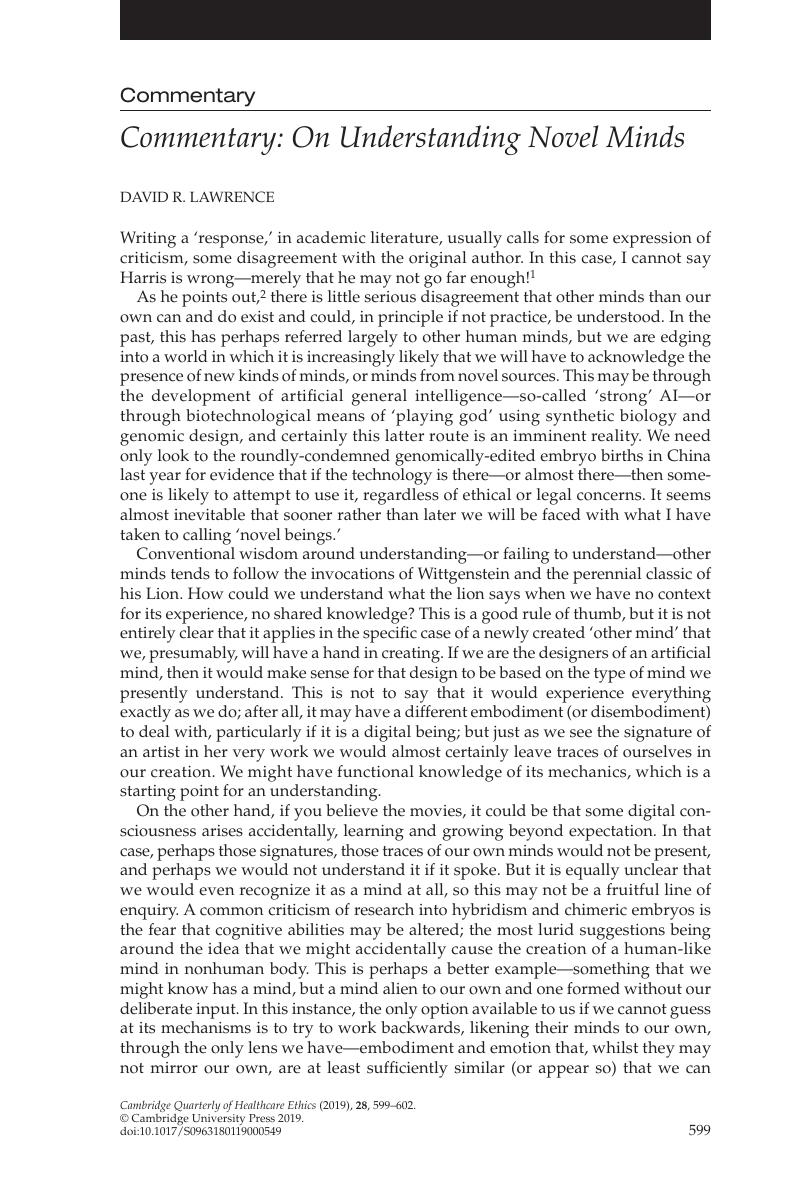No CrossRef data available.
Article contents
Commentary: On Understanding Novel Minds
Published online by Cambridge University Press: 17 September 2019
Abstract

- Type
- Commentary
- Information
- Cambridge Quarterly of Healthcare Ethics , Volume 28 , Special Issue 4: Clinical Neuroethics , October 2019 , pp. 599 - 602
- Copyright
- Copyright © Cambridge University Press 2019
References
Notes
1. Which is something of a rarity.
2. Harris, J. Reading the minds of those who never lived. Enhanced beings: The social and ethical challenges posed by super intelligent ai and reasonably intelligent humans. Cambridge Quarterly of Healthcare Ethics 2019;28(4):585–91.Google Scholar
3. Lawrence, DR. More human than human. Cambridge Quarterly of Healthcare Ethics 2017;26(3):476–90.CrossRefGoogle Scholar
4. UN General Assembly Universal Declaration of Human Rights (UDHR), (10 Dec 1948), A26; UN General Assembly, International Covenant on Economic, Social and Cultural Rights (ICESCR), United Nations Treaty Series, CMXCIII, (16 Dec 1966) A13, A14; Council of Europe European Convention on Human Rights 1950, Protocol 1 (2010) A2.
5. Vyshedskiy, A. Linguistically deprived children: Meta-analysis of published research underlines the importance of early syntactic language use for normal brain development. Research Ideas and Outcomes 2017;3:e20696. https://doi.org/10.3897/rio.3.e20696.CrossRefGoogle Scholar
6. See note 3, Lawrence 2017.




